On Oct 25, CTLE held a professional development workshop GenAI in education. This event explored the opportunities and issues in teaching, learning and assessment. The invited speaker, Prof. Mike Sharples from the Open University in the United Kingdom, drew a crowd of over 40 UM academic staff from various faculties.
Prof. Mike Sharples introduced the capabilities of modern language models like ChatGPT-4, PaLM2, Claude-2, which can generate lengthy texts in any style across multiple languages. However, he pointed out that these systems could at times produce false responses. He saw new roles for AI, such as a ‘possibility engine’ to brainstorm ideas and a ‘Socratic opponent’ to help develop arguments. Other roles include ‘personal tutor’, ‘co-designer’ and ‘dynamic assessor’.
Talking about assessment, Prof. Sharples observed that as GenAI could make traditional exams obsolete, real-world practices like project-based learning should be given more weight. He proposed assignment designs focusing on process over product. He also emphasized the need for clear policies around GenAI use and acknowledging sources to build trust.
The speaker also spoke about key challenges posed by GenAI, including privacy, bias, ethics, and potential risk of mis-information and mis-understanding. He concluded the presentation by advocating a collaborative approach between education practitioners: we need to work together to promote personal and social learning in the fast-growing web of powerful AI tools. Finally, he demonstrated working with different prompts on GenAI tools and exchanged further insights with the audience. (Download slides) (Watch Keynote video)
A series of teaching blog posts have been published on CTLE website regarding the integrating AI technologies in teaching, learning and assessment. CTLE is at your service in this rapidly evolving digital era of teaching and learning.
教與學優化中心辦專題研討會 全面探討GenAI教學和評估
教與學優化中心在10月25日舉辦教師專業發展專題研討會,探討生成式人工智能(GenAI)在教學、學習和評估中的機遇與挑戰,邀請了來自英國公開大學的Mike Sharples教授作主題演講,吸引逾40位來自不同學院澳大教學人員參與。
Mike Sharples教授介紹了現代語言模型如ChatGPT-4、PaLM2、Claude-2的能力,它們可以生成多種語言、任何風格的長篇文本。然而,他指出這些系統有時會產生錯誤的回饋;他認為人工智能(AI)可以扮演新角色,例如作為「可能性引擎」來激發創意,作為「蘇格拉底對手」來幫助發展論點,其他角色還包括「個人導師」、「共同設計者」和「動態評估者」等。
談到教學評估,Sharples教授觀察到GenAI令傳統考試過時,故應該更重視實踐性更強的項目式學習,他提出了以過程為重點的作業設計,並強調需要明確的GenAI使用政策、標明資料來源以建立信任。
他還談到了GenAI帶來的主要挑戰,包括隱私、偏見、道德問題、錯誤信息和誤解風險;他最後呼籲教育同儕採取協作方式,在快速發展的AI時代中共同努力,促進個人和社交學習;他最後展示了在GenAI工具上使用不同提示的實際操作,並與觀眾交流分享見解。(下載幻燈片)(觀看演講影片)
如想了解更多關將AI技術融入教學、學習和評估,請訪問CTLE網站的教學博客系列。在這快速發展的數碼教學時代裡,我們竭誠為您服務。
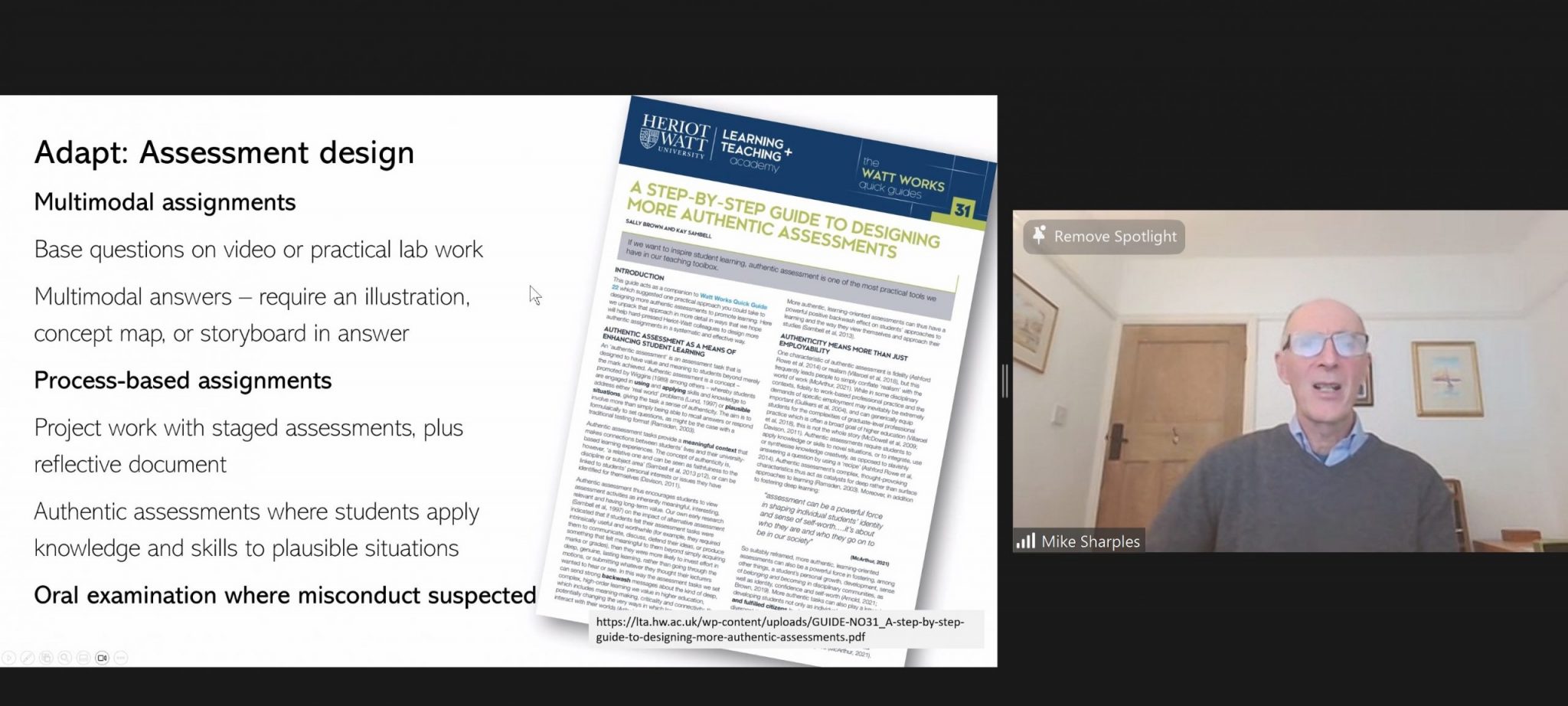
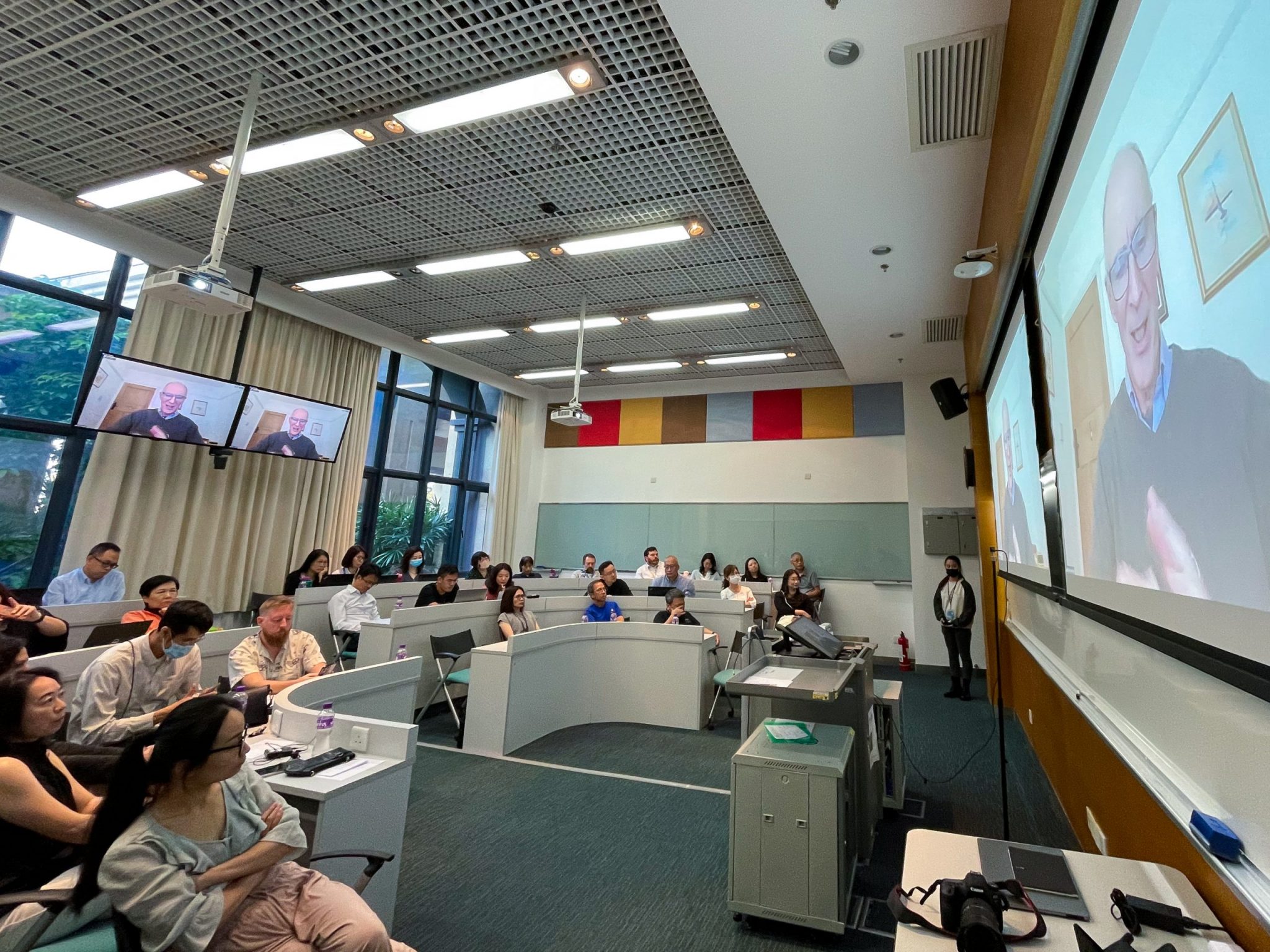
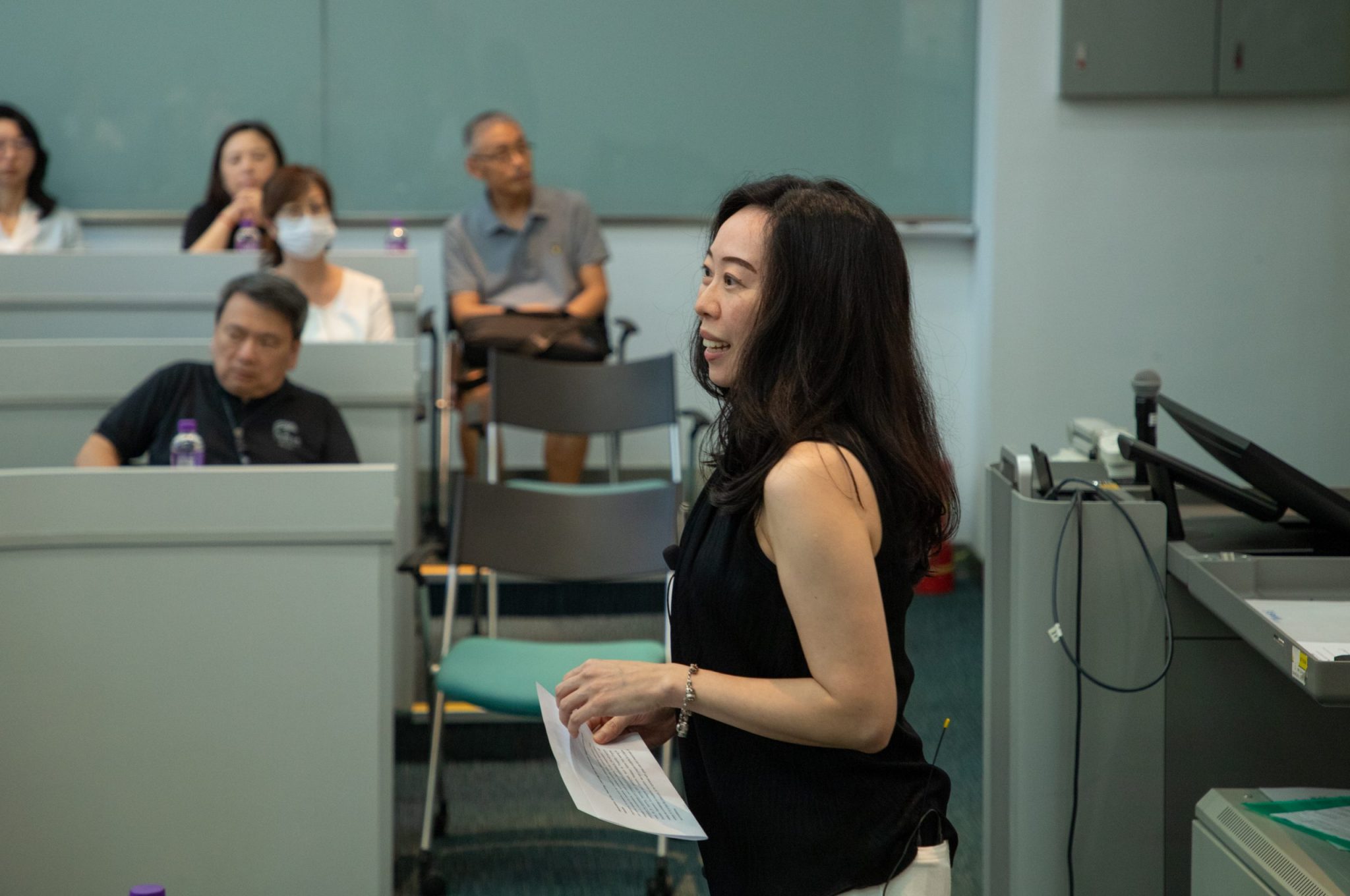
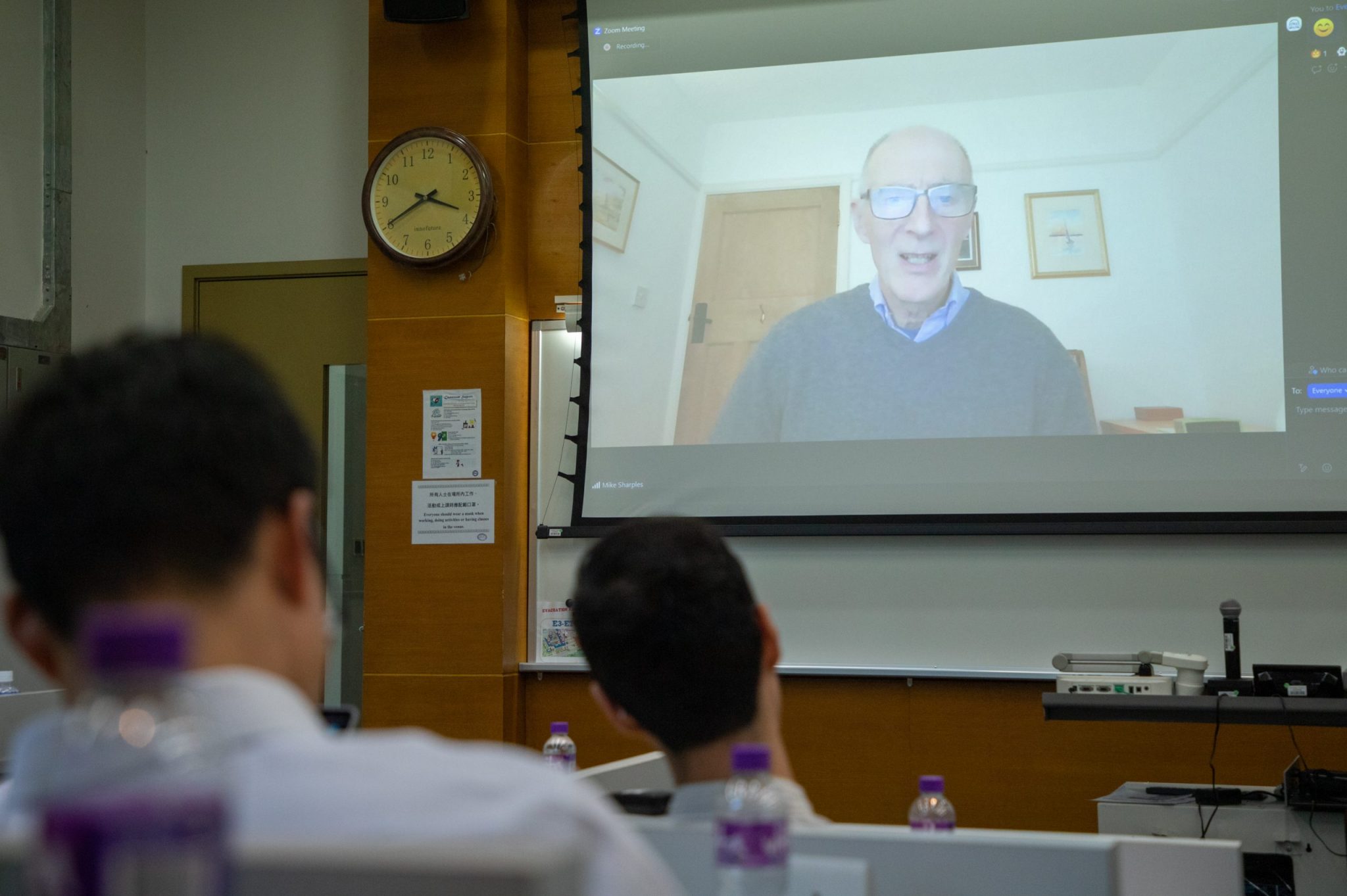
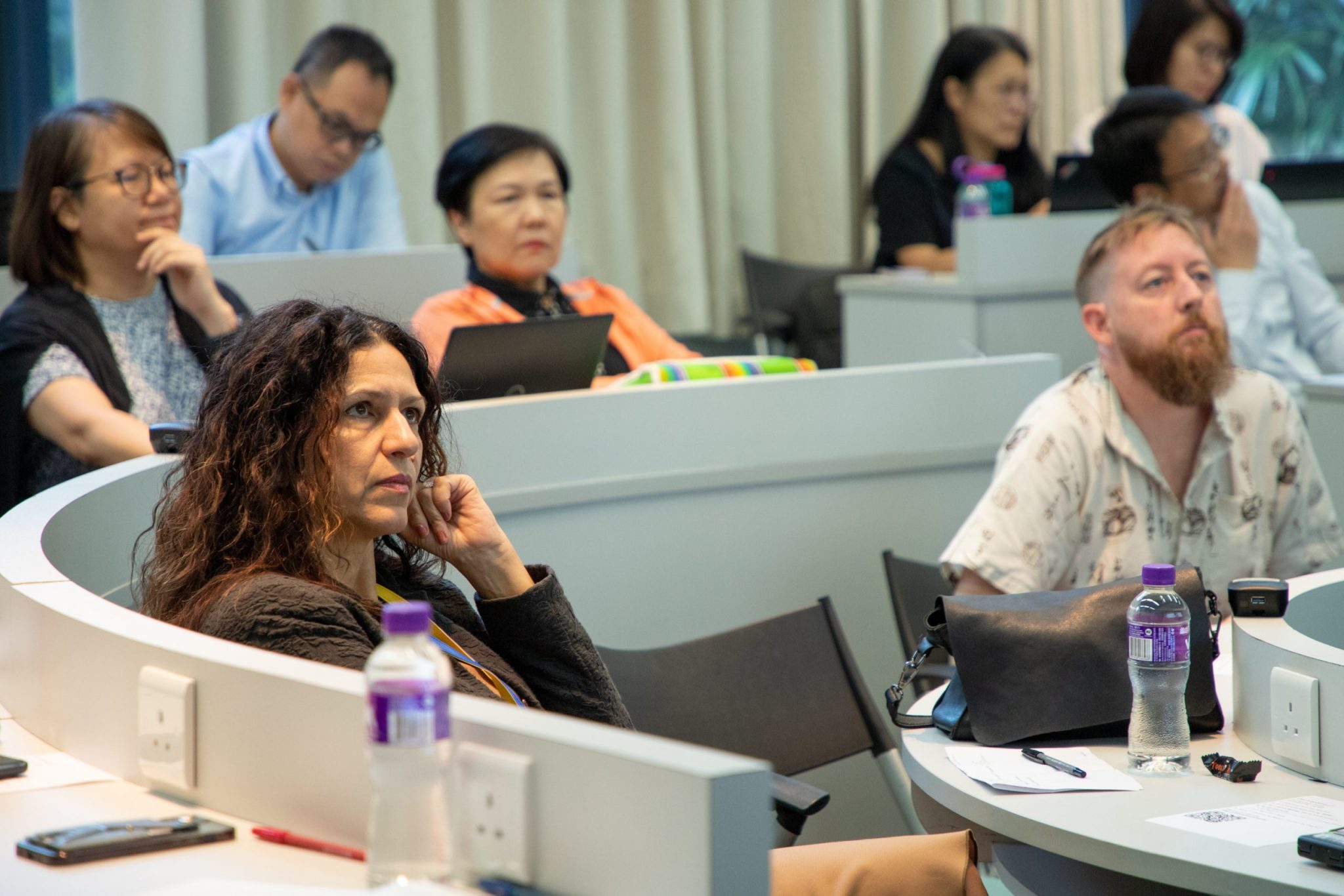
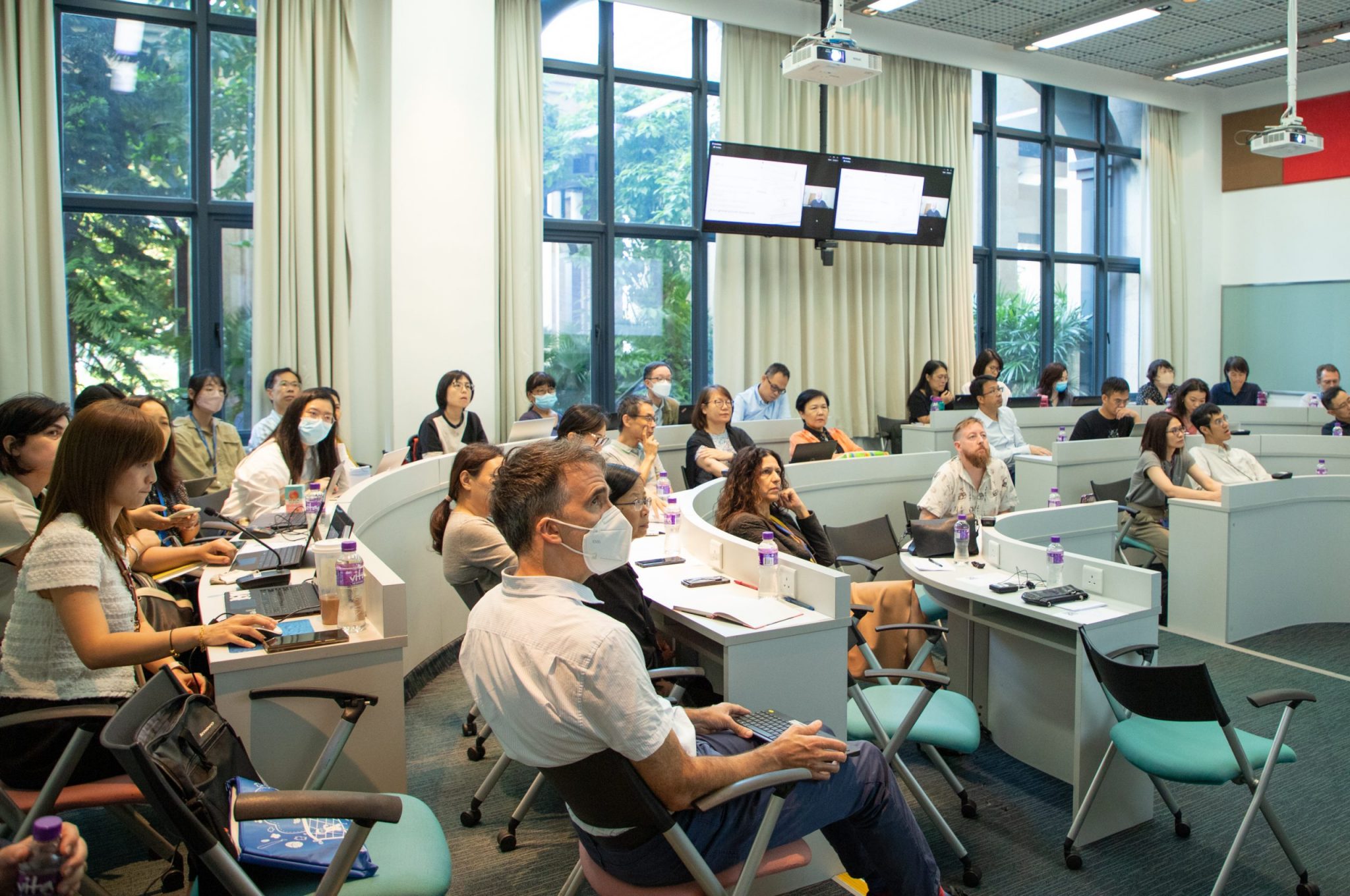
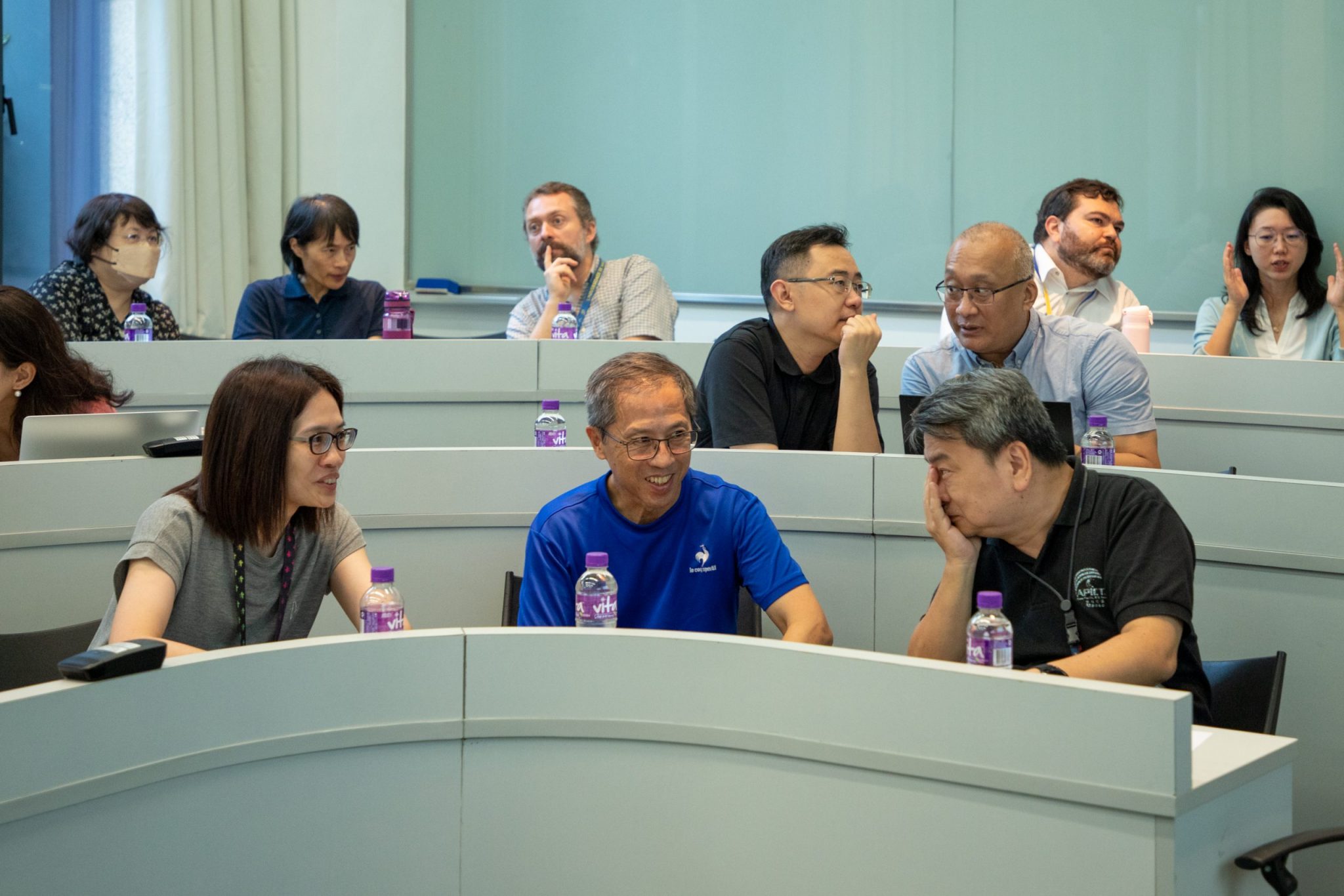
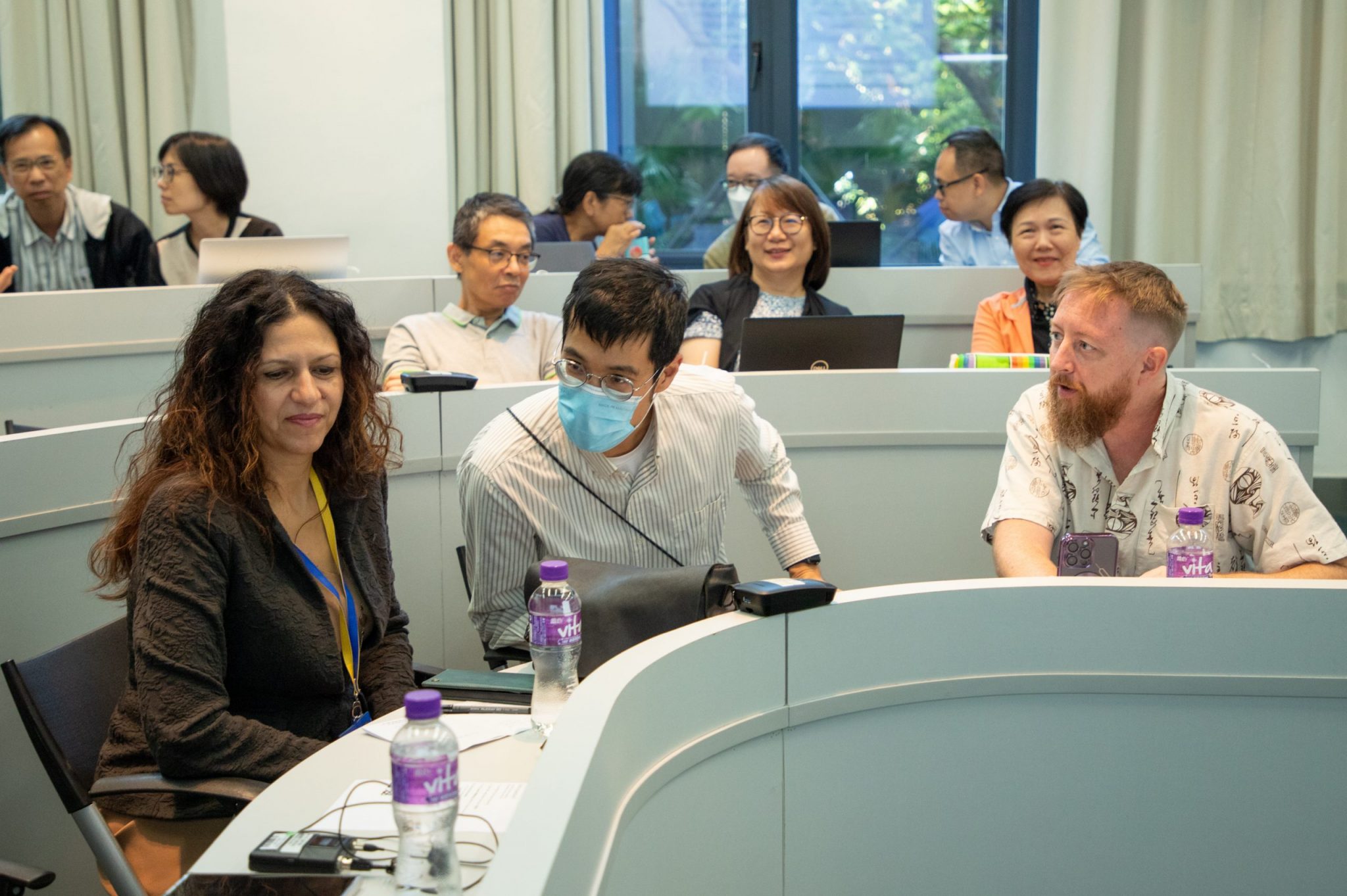
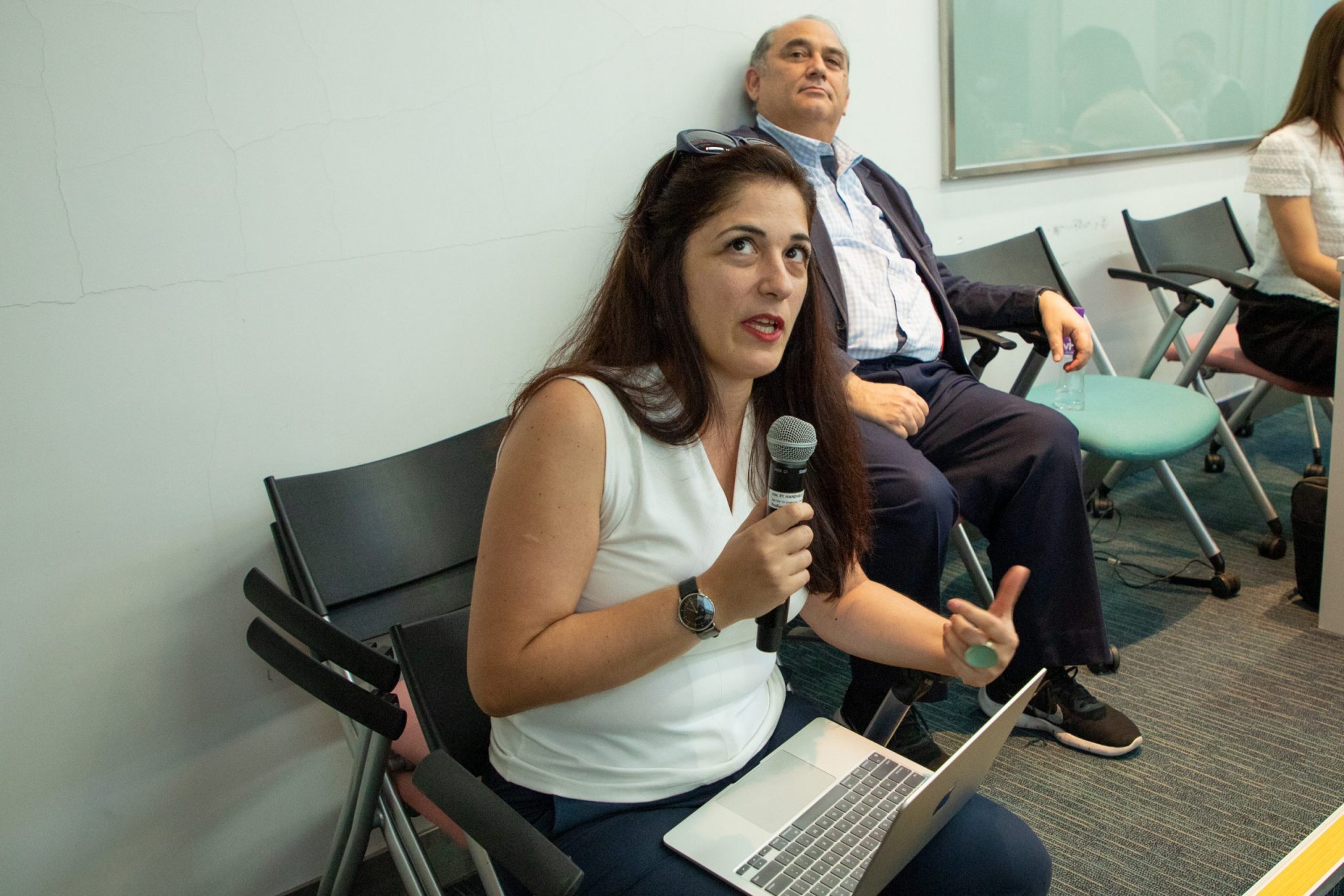
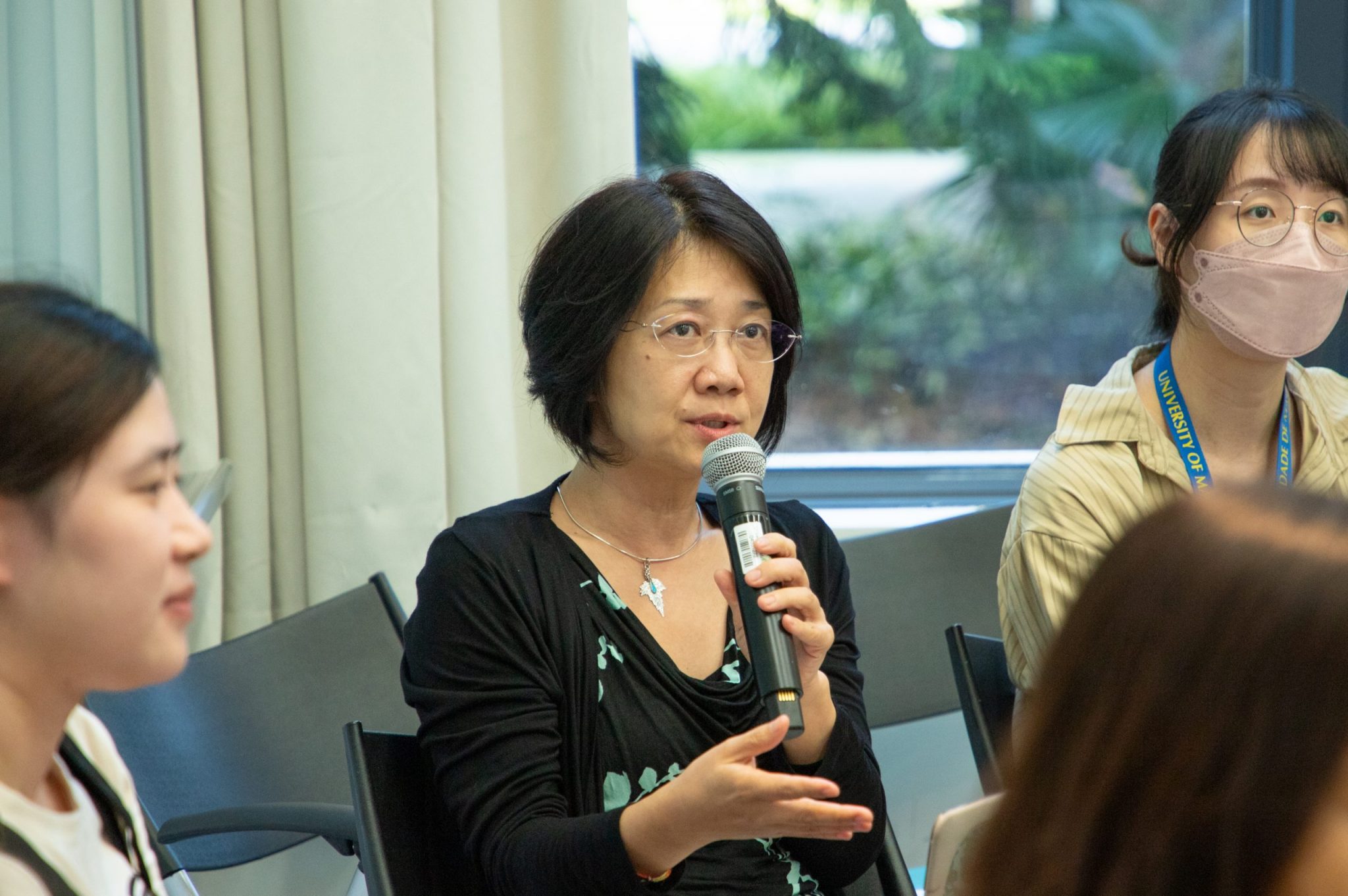
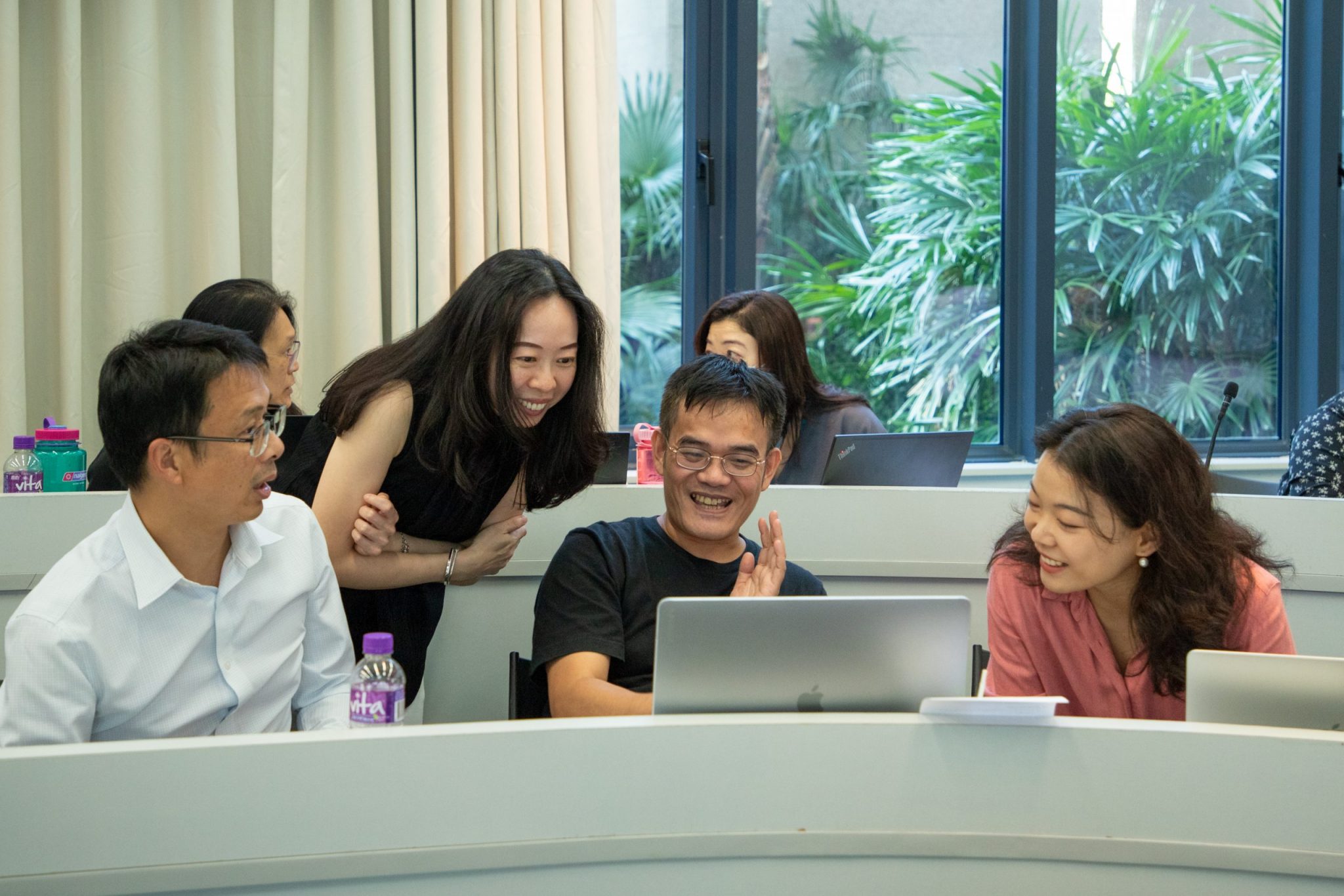
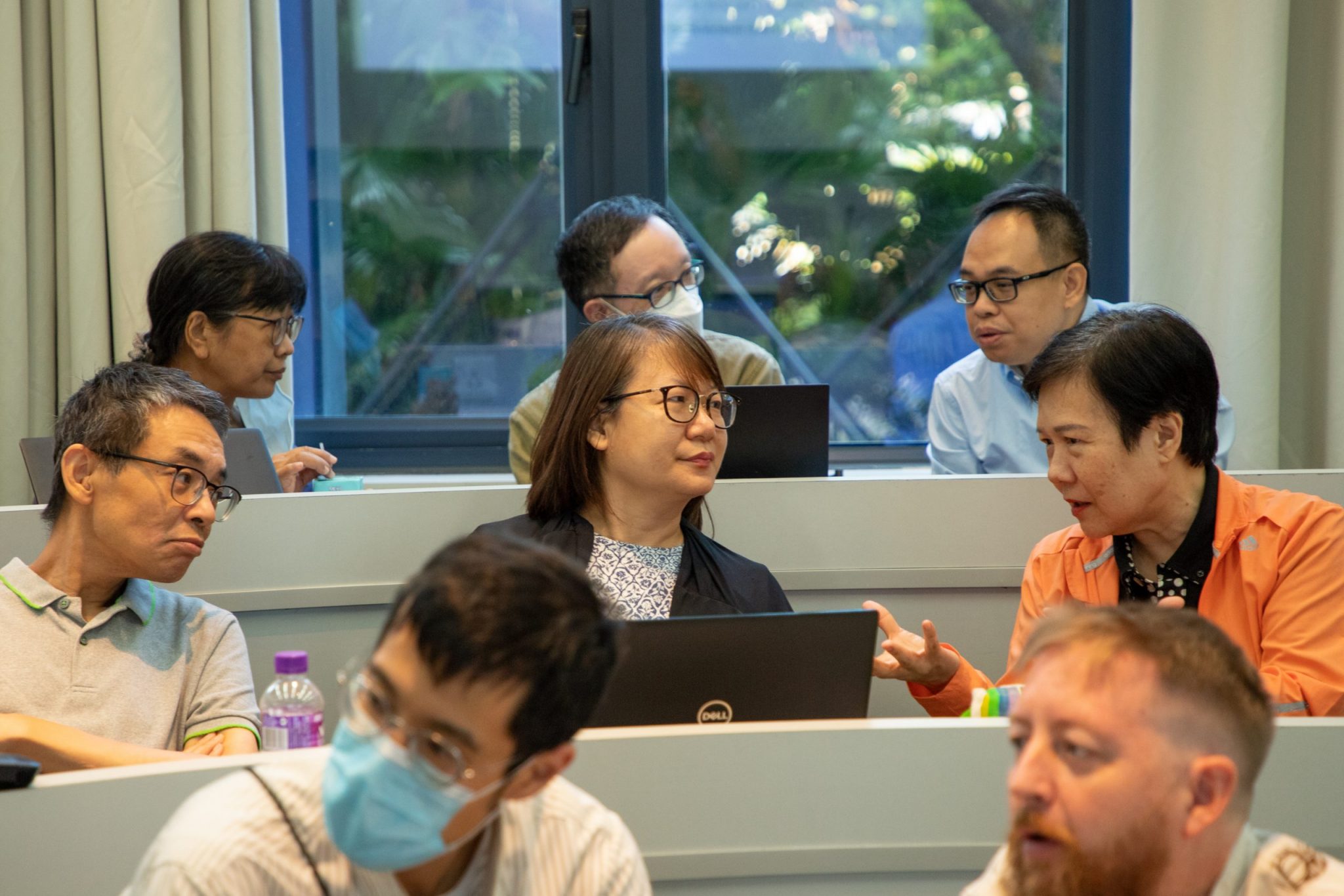
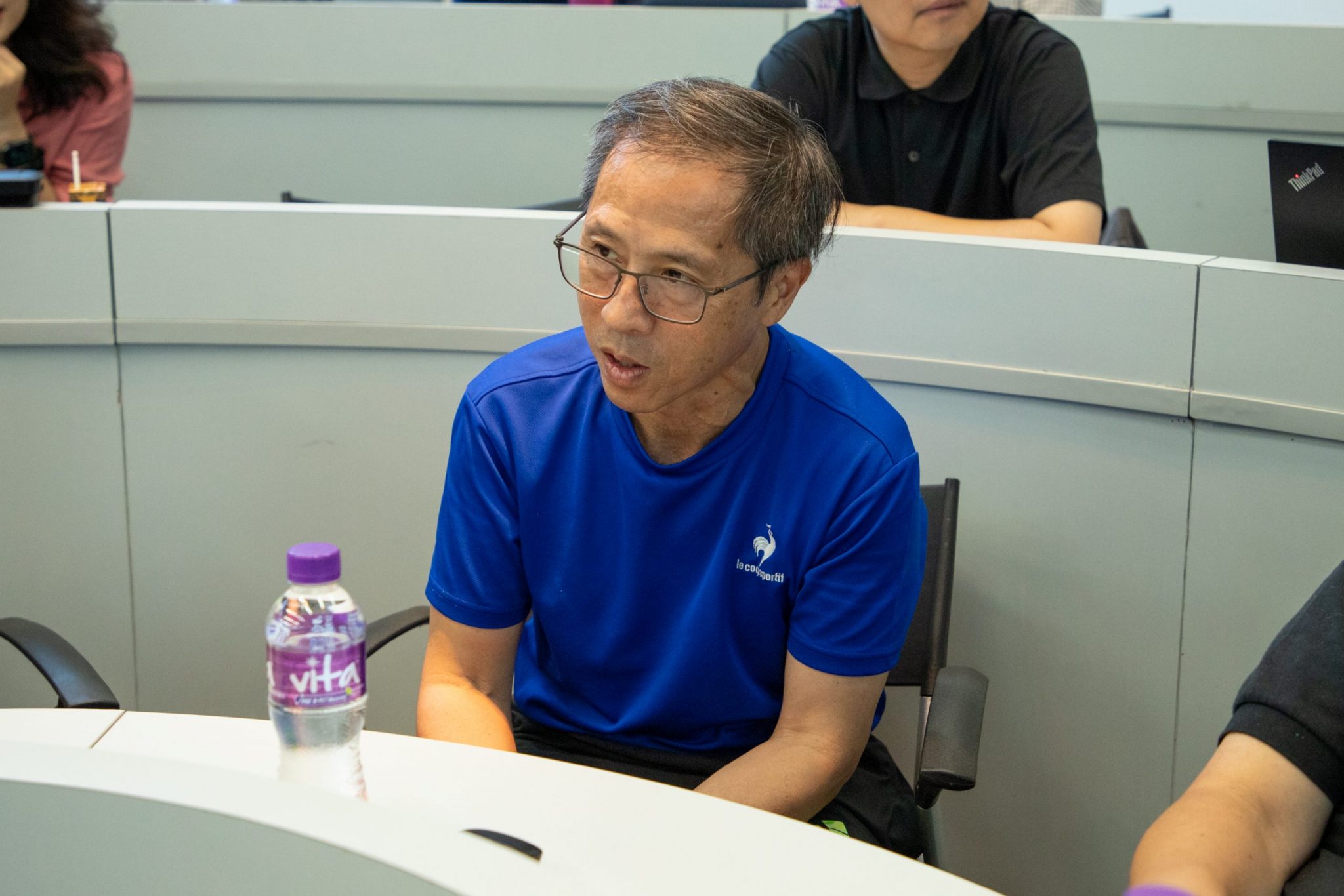
Leave A Comment
You must be logged in to post a comment.